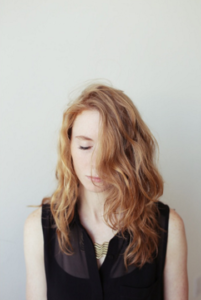 |
 |
 |
Anne Rainwater, Amy Foote, and Helen Newby have formed a unique trio of percussive piano, cello and text-based voice. They perform music that is deeply connected to the modern political, social, and emotional currents of our world to create a more relevant and culturally embodied musical experience. Their first program, “”Goddess,”” is dedicated to the divine feminine, a glimpse into the generations of the group’s past and of all the women that have gone before.
Anne is a dextrous musician known for her vibrant interpretations and “”bold assertive rhetoric”” (SF Examiner) of the contemporary repertoire. She has collaborated with a diverse group of composers, including Danny Clay, Stuart Saunders Smith, Nils Vigeland, and Ken Thomson. Helen Newby, a recent graduate of San Francisco Conservatory of Music, has been making herself known as a theatrical performer, diving into a variety of ensembles, including a string quartet, a jazz sextet, and an experimental noise quartet. Amy Foote, undaunted by the vocal and theatrical challenges of the contemporary vocal repertoire, has demonstrated “”a fantastic range of vocal and theatrical abilities…[with] delightful phrasing, extraordinary comic timing and a vivacious sense of humor…”” (SF Classical Voice.) She has worked with over 25 composers nationwide and performed with many groups in the bay area including SFCMP, Friction Quartet, Elevate Ensemble and Nonsemble 6, with whom she traveled throughout the United States performing a memorized, staged version of Schoenberg’s “”Pierrot Lunaire.””
First on the program is a West Coast premiere of John Zorn’s “”Jumalattaret,”” set for voice and piano and based on the ancient Finnish mythological text “”The Kalevala,”” with each movement dedicated to a different Finnish goddess. The meditative “”Tehran Nights”” by Klaus Lang (set for harmonium and cello) follows, leading us into Kaija Saariajo’s “”Mirage,”” for piano, cello, and voice. “”Mirage”” is a setting of an English translated chant from Mazatec curandero and poetess Maria Sabina. In this work, the role of the soprano is often fused with that of a shaman as she loses herself in unapologetic exultation. “”Mirage”” is ultimately a reflection on and celebration of the divine feminine spirit.